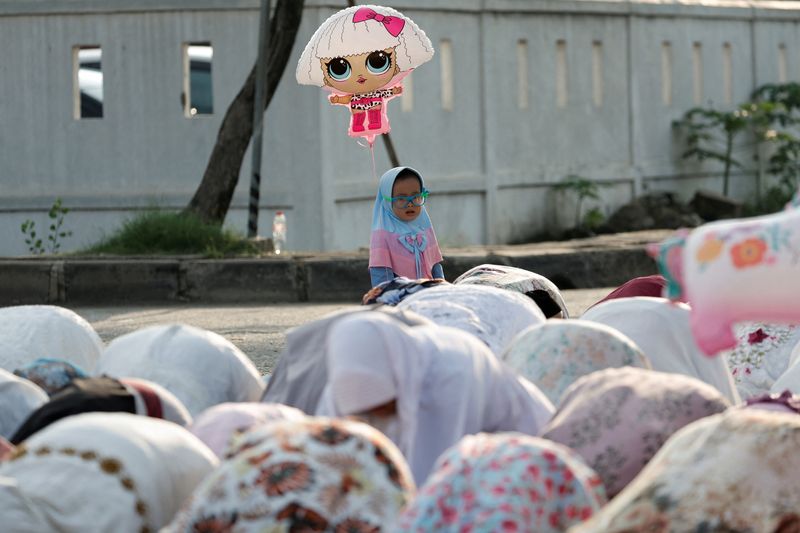Compromise reached on criminal code in Indonesia
2022.12.20 04:13
[ad_1]

Compromise reached on criminal code in Indonesia
Budrigannews.com – Accounts of behind-the-scenes negotiations reveal that Islamic parties wanted even harsher punishment for moral crimes in the world’s largest Muslim-majority nation, despite the fact that Indonesia’s new criminal code has made headlines for making sex outside of marriage illegal.
The purported ethical quality code is only one piece of the regulative update that the Indonesian parliament sanctioned for the current month, a 226-page set of new regulations that pundits say undermine common freedoms, yet authorities guard as intelligent of Indonesia’s personality.
In the background, common patriot parties holding a greater part in parliament went against the more tight regulations on profound quality however gambled being marked strong of infidelity in the event that they stayed immovable in their resistance.
According to Taufik Basari, a member of the parliamentary commission in charge of overseeing the changes, the outcome was a compromise between the government and political parties.
He stated, “We found a middle ground, not only between nationalists and religious parties but also between conservatives and progressive liberals.”
The third-largest democracy in the world has a long history of pluralism and moderate Islam. However, more conservative interpretations of Islam have grown in popularity since the death of authoritarian leader Suharto in 1998.
Articles known as Pancasila that prohibit insulting the president and state institutions as well as propagating views that are opposed to the state ideology are included in the new criminal code, which was created decades ago to replace a set of laws from the colonial era.
The laws pose a threat to media freedom, privacy, and human rights, according to the United Nations.
The ethical quality regulations have, of course, drawn the most consideration and analysis but rather a few authorities said they would have been much stricter on the off chance that the strict gatherings had their direction.
According to sources familiar with the discussions, Islamic parties had called for a maximum sentence of seven years in prison for sex outside of marriage and for anyone to be able to report a suspected offense.
According to Muhammad Nasir Djamil of the Islamic Solidarity Party, negotiations were deadlocked until late November. The religious parties requested a vote in parliament, which the nationalist parties were reluctant to accept because it would have required each party to disclose its position in parliament and possibly to the public.
He stated, “This issue is extremely sensitive among religious people.”
A group of law professors had consulted Indonesia’s official dictionary when drafting the laws, which defines adultery as any sex other than extramarital sex.
Except for cases connected to rape or a medical emergency, other articles make cohabitation between unmarried couples, promoting contraception to minors, and abortion illegal.
Harkristuti Harkrisnowo, a member of the drafting team and a professor of law at the University of Indonesia, stated, “Indonesia was trying to make its own code, based on its values.”
According to Jaleswari Pramodhawardani, the deputy chief of staff for President Joko Widodo, none of the nationalist parties that dominate the coalition supported the morality clauses but ultimately agreed to the watered-down version.
The final compromise stipulates a maximum sentence of one year for sex outside of marriage and six months for cohabitation. Officials hope that by restricting the reporting of suspected crimes to a spouse, parent, or child, they will prevent police raids and moral crusader finger-pointing.
According to Taufik, “This was the best we could do… It was a win-win solution, a middle ground.” The article is still there, but we restricted it severely.
The public’s largely muted response to the new laws, which take effect in three years, suggests that they are unlikely to jeopardize political stability.
Analysts stated that support for morality laws carries a political advantage ahead of the polls, despite the fact that Jokowi, as the president is known, is prohibited from running again in the 2024 election under the constitution.
Greg Fealy, a professor at the Australian National University, stated that “nationalist parties were thinking ahead to the 2024 election.”
“They want to calm any potential attacks by Islamists on them,”
According to parliamentary and government sources, the government and its allies got some of what they wanted on sex if the Islamic parties got most of it.
A disagreeable article that fugitives offending the nobility of the president was once again introduced by the public authority, said regulation teacher Harkristuti, regardless of a comparable regulation being dissolved by the sacred court for being undemocratic.
Only the president is authorized to report that offense, which, according to sources, was not supported by Jokowi himself.
According to two involved sources, the government was also able to include a last-minute change in its favor to a law that prohibited the spread of values that went against the state’s ideology without consulting the public.
More U.S. sends bomber to North Korea border
According to Human Rights Watch’s Andreas Harsono, both sides achieved their goals at the expense of rights.
He stated, “The other parties will benefit from strengthening authoritarianism while the Islamic parties benefit from the morality agenda.”








